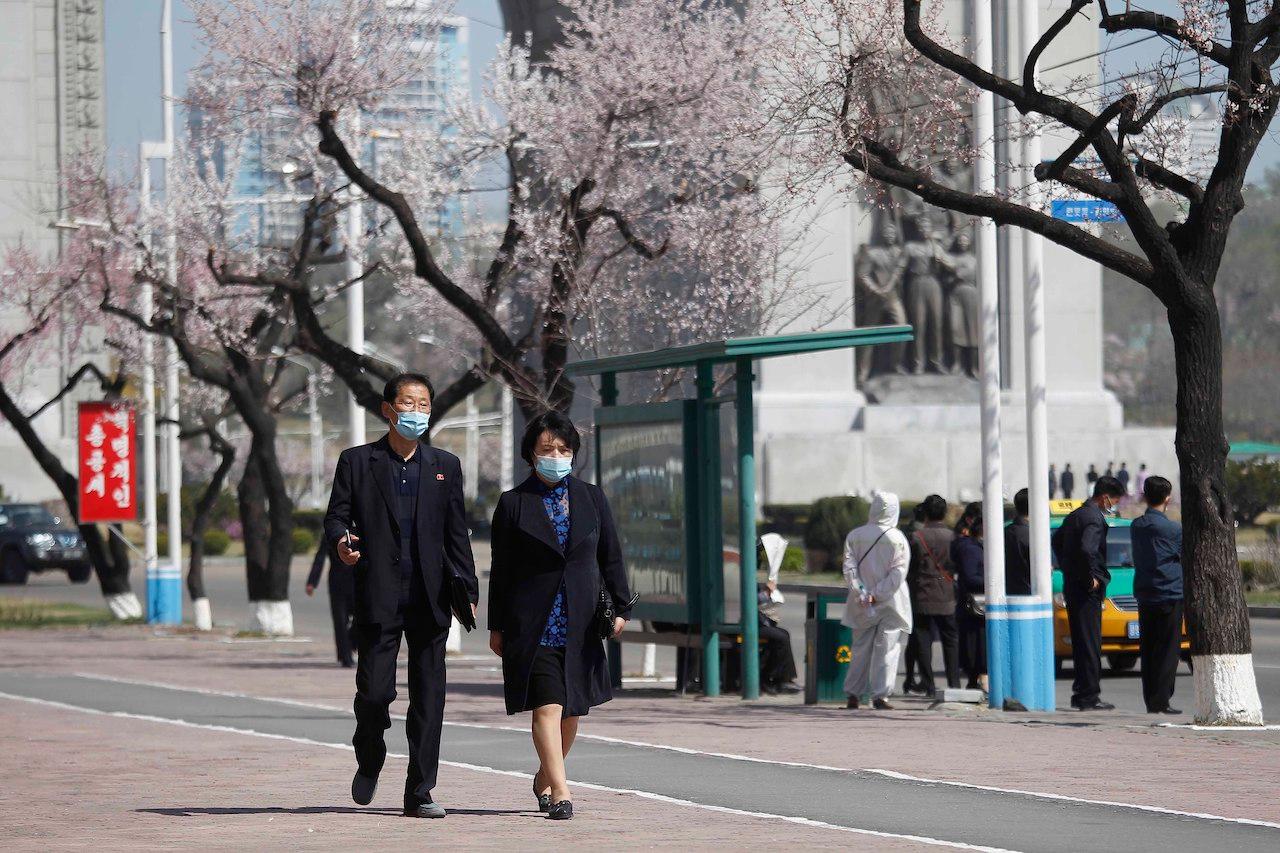Sanctions, food shortages raise fears of North Korean famine
North Korean leader Kim Jong-un has called for another 'arduous march', echoing the phrase used to describe the nineties famine when starving citizens were forced to eat tree bark to stay alive.
North Korea is under “mounting economic pressure” as food shortages and sanctions bludgeon the secretive dictatorship, ratings agency Fitch is warning.
The totalitarian state’s supreme leader Kim Jong-un has said the country is facing its “worst ever situation”, raising the spectre of the nineties famine which killed almost three million people.
North Korea does not publish statistics but researchers at Fitch Solutions – one of the few outlets to monitor North Korea’s economy – estimate the country suffered its worst year in decades during 2020.
The lingering effect of Kim’s Covid-19 shutdown and the tougher economic sanctions in place since a series of nuclear tests and rocket launches in 2017 will limit any growth recovery this year, Fitch said.
Russia is one of the few countries to maintain diplomatic relations with Pyongyang and the scale of the crisis facing the country was highlighted by the recent exit of Russian embassy staff as diplomats complained of “unprecedented” restrictions of movement as well as shortages of basic goods and medicines.
Kim, who has ruled the state for 10 years, called for another “arduous march” earlier this month in a speech to party officials, echoing the phrase used to describe the nineties famine when starving citizens were forced to eat tree bark to stay alive.
Although North Korea is currently not facing a famine on such a scale, shortages are “acute” according to local reports. Pork prices have jumped almost 60% in the past six months and corn prices have hit the highest level since 2009, Fitch said.
A UN report warned last year that more than 10 million people in North Korea were in “urgent need of food assistance” but the UN now has just a handful of staff on the ground due to the pandemic.
Progressively tightening sanctions have meanwhile cut the country’s trade with the rest of the world by almost 90% over the past 20 years.
Anwita Basu, head of Asia at Fitch Solutions, said: “Overall, we do not expect to see a relaxation of international sanctions on North Korea any time soon, as the Biden administration is unwilling to reward Pyongyang without the latter making a tangible gesture in relation to abandoning its nuclear weapons programme.”
The country’s biggest trade partner, China, is set to resume a cargo train service with North Korea next month after both countries closed their border due to the pandemic.
Basu commented, “Even if trade with China recovers in a substantial way, we believe that on balance this will not add positively to growth in North Korea as the country imports more than it exports.”
Subscribe to our newsletter
To be updated with all the latest news and analyses daily.
